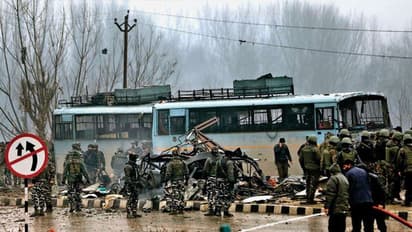
New Delhi: On December 15, 2017, in a reply to an RTI query, the ministries of defence and home had clarified that, in their records, the terms “martyr” or “shaheed” do not figure as references to soldiers and policemen who lay down their lives in the line of duty.
Following the attack at Pulwama by Pakistan-sponsored Jaish-e-Mohammed’s terrorists on CRPF jawans, when emotions of Indians poured out on social media and other public platforms, Canadian from the Indian subcontinent — he hates to be referred to as a Pakistani — Tarek Fatah pointed out that the term “shaheed” has Islamic connotations.
Indeed, the origin of the word shaheed (شهيد) is Arabic, its plural form being shuhda (شُهَدَاء) and feminine form being shaheedah (شہیدہ). While literally, a shaheed is a witness, which can be used in secular literature too, in the Qur’an it is clearly “one who dies deliberately for his faith”.
Shaheed descends from a clearly Islamic jargon "istish'had" (استشهاد).
In Oxford Bibliographies, David Cook writes, “The word shahid (plural shahada) has the meaning of “martyr” and is closely related in its development to the Greek martyrios in that it means both a witness and a martyr (i.e., a person who suffers or dies deliberately for the sake of affirming the truth of a belief system). Although shahid in the first sense occurs frequently in the Qurʾan, in the latter sense only once is it attested (3:141). In the Hadith literature, and most especially in the subset of the jihad literature that was parallel to it, the term is frequently used, and it gradually makes an appearance in the historical and literary texts as well. Martyrdom in Sunni Islam, other than the very earliest period of persecution by the polytheists of Mecca, has been closely associated with death in battle.”
But what’s the problem with “martyr”? The etymology of the word takes us back to a period before 900 AD when, in Middle English, the word was used as marter, martir or martiren. That, in turn, had come from Old English’s martyr, martur, martir or martyrian. However, that was not the origin either. It came from the Greek mártys or mártyros, which referred to, just like shaheed in Islam, a witness!
A witness to what? Wikipedia describes a martyr as “one who willingly accepts being put to death for adhering openly to one's religious beliefs; notably, saints canonized after martyrdom” and gives an example to drive home the point: “Saint Stephen was the first Christian martyr.”
Etymonline has this description:
"one who bears testimony to faith," especially "one who willingly suffers death rather than surrender his or her religious faith," specifically "one of the Christians who in former times were put to death because they would not renounce their beliefs," late Old English martyr, from Late Latin martyr, (source also of Old French martir, Spanish martir, Italian martire, etc.), from Doric Greek martyr, earlier martys (genitive martyros), in Christian use "martyr," literally "witness."
In Middle English, even a verb martyrise existed. The site above carries this definition:
"put to death as punishment for adherence to some religious belief (especially Christianity)," Middle English martiren, from Old French martiriier and in part from Old English gemartyrian, from martyr (n.). Middle English also had a verb martyrise (mid-15c.).
Responding to Fateh’s tweet, Major Gaurav Arya, associated with Republic TV besides being a soldier, accepted the contention.
Others followed.
Finally, more soldiers pitched in, echoing Maj Arya’s sentiment and the sarkari choice of words to describe soldiers and cops who sacrificed their lives for the nation.
The word "hero" describes anybody who rises to the occasion. A hero could be a civilian and not necessarily one who is a soldier or cop by profession.
Furthermore, a hero may survive the attack and even manage to kill the assailants.
The Oxford English Dictionary defines a hero as
a person, especially a man, who is admired by many people for doing something brave or good
The word does not, hence, wholly serve the purpose of qualifying a policeman or soldier who died in the line of duty.
Refer again to the story of December 2017. The RTI application had first made the rounds of the home and defence ministries. Neither could satisfy the applicant. He approached the CIC.
The highest appellate body for the Right to Information Act heard out the relevant officers of the ministries of defence and home affairs. Then information commissioner Yashovardhan Azad said, “The respondent from the ministry of defence stated that word ‘shaheed’ or ‘martyr’ is not used by the MoD. Instead the one used is ‘battle casualty’. The respondent from the ministry of home affairs stated that in the MHA the word used is ‘operations casualty’.”.
“… the commission finds that the averments made by both the respondents have duly explained the correct usage of the terms…,” the then IC said.
As a soldier above says, “Soldiers have one religion. India.”